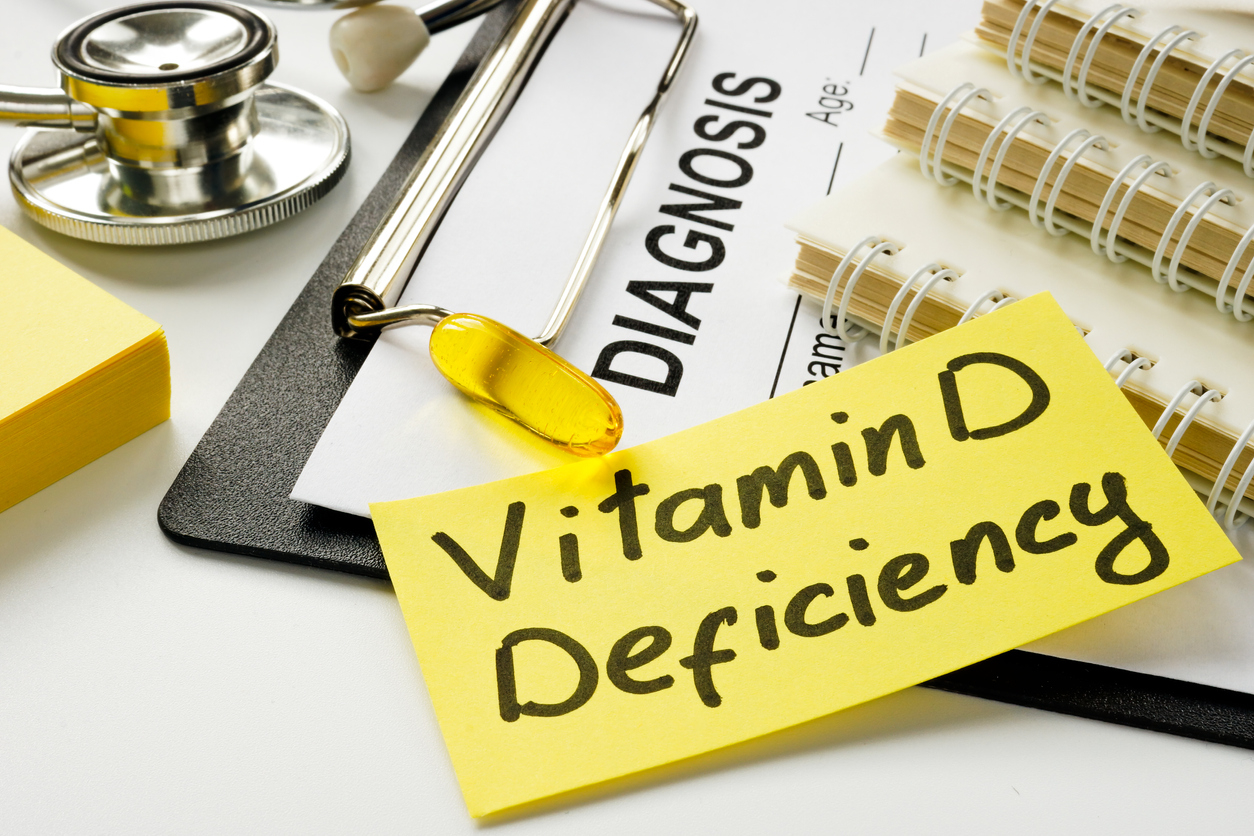Commitment + Clinical Leadership = Better Outcomes

Signs of a Vitamin D Deficiency
Vitamin D is an essential, fat-soluble nutrient that has many health benefits, but many Americans lack vitamin D. One study found that nearly half of adults in the United States, 42%, were deficient in Vitamin D.1
Here are some reasons why vitamin D is important to your health, as well as 14 signs of vitamin D deficiency.
Why is Vitamin D Important?
Some reasons why vitamin D plays an essential role in your body’s everyday functioning include:
- Promoting healthy bones and teeth
- Playing a role in immune function
- Helping to regulate inflammation2
- Supporting the nervous system
- Supporting the musculoskeletal system
- Maintaining the balance of calcium in the blood3
- Type 2 diabetes prevention4
- Heart disease prevention
Vitamin D deficiency is common among many people, especially those older than 65.3 Not having enough vitamin D in the body can cause issues with your bones and muscles.
Who is at risk for Vitamin D deficiency?
Although anyone could be deficient in vitamin D, some people are more likely to be at risk.2
- Lack of sun exposure. Absorbing sunlight is necessary to produce vitamin D. If someone refrains from being in the sun, they might be at risk for a deficiency.
- Older age. The body’s ability to synthesize vitamin D decreases with age, making older adults more susceptible to a vitamin D deficiency.
- Obesity. Being overweight and having high levels of body fat can limit the body’s ability to absorb vitamin D from the skin.
Signs of Vitamin D Deficiency
Here are 14 signs of vitamin D deficiency.4
- Frequent illnesses. Vitamin D helps support the immune system that protects you against viruses that cause illnesses. If you’re getting sick often, you may be deficient in vitamin D.
- Fatigue. If you feel fatigued often, then you might have a vitamin D deficiency. However, fatigue can be a sign of many different illnesses or lifestyle habits, so check with your doctor to confirm the cause.
- Bone pain. Vitamin D helps your body absorb calcium, which supports your bones. If you’re feeling bone pain, you could have a vitamin D deficiency.
- Incorrect growth patterns. Children who have severely low levels of vitamin D in their bodies may have incorrect growth patterns, which is shown in bowed or bent bones.3
- Depression. Vitamin D deficiency has been linked to depression. Additionally, consumption of vitamin D has been found to relieve symptoms of depression.5
- Mood changes. Vitamin D can affect your mood and overall mentality, and it’s been linked to anxiety disorders.
- Slow wound healing. Vitamin D increases the compound production that aids in the formation of new skin, as well as the skin healing process. If your skin is taking an unusual amount of time to heal from small wounds, this could be a sign of a vitamin D deficiency.
- Bone loss. Vitamin D is essential for healthy bones, bone metabolism, and calcium absorption. Without calcium absorption, you may experience low bone mineral density and bone loss.
- Hair loss. Although there are many causes for hair loss, it has been linked to vitamin D deficiency, especially in women.
- Muscle pain. Many studies have found that muscle pain is linked to low levels of vitamin D. The vitamin D receptor is present in nerve cells that sense pain.6
- Muscle weakness. A vitamin D deficiency causes muscle weakness. This can be dangerous for older adults, as it increases their risk of falls.7
- Loss of sleep. Vitamin D deficiency has been linked to sleep disorders, including poor sleep quality and sleep apnea.8
- Loss of appetite. Vitamin D has been linked to the hunger reflex, and low levels of it may make food unappetizing.9
- Weight gain. Obesity is a risk factor for vitamin D deficiency, and one study linked low levels of vitamin D with increased weight, mostly in men.10
If you experience any of these symptoms and need confirmation if you’re deficient in vitamin D, talk with your doctor. They can properly test you and rule out other possible health conditions that may share the same or similar symptoms.
Learn More Today
Now that you’ve learned 14 signs of a vitamin D deficiency, you can be on the lookout if you or a loved one experience any symptoms.
Saber Healthcare is an organization dedicated to providing consultant services to long-term care providers. This article is for informational purposes and is not meant to be seen as professional advice. Please consult with a medical expert before relying on the information provided.
Sources
- https://www.ncbi.nlm.nih.gov/pmc/articles/PMC6075634/.
- https://www.medicalnewstoday.com/articles/161618.
- https://my.clevelandclinic.org/health/diseases/15050-vitamin-d-vitamin-d-deficiency.
- https://www.healthline.com/nutrition/vitamin-d-deficiency-symptoms.
- https://www.ncbi.nlm.nih.gov/pmc/articles/PMC6970300/.
- https://pubmed.ncbi.nlm.nih.gov/29559013/.
- https://www.yalemedicine.org/conditions/vitamin-d-deficiency#:~:text=When%20vitamin%20D%20levels%20are,an%20increased%20risk%20of%20falls.
- https://www.insider.com/how-vitamin-d-affects-sleep-2019-2.
- https://www.livestrong.com/article/385701-vitamin-d-loss-of-appetite/.
- https://pubmed.ncbi.nlm.nih.gov/32204746/.
